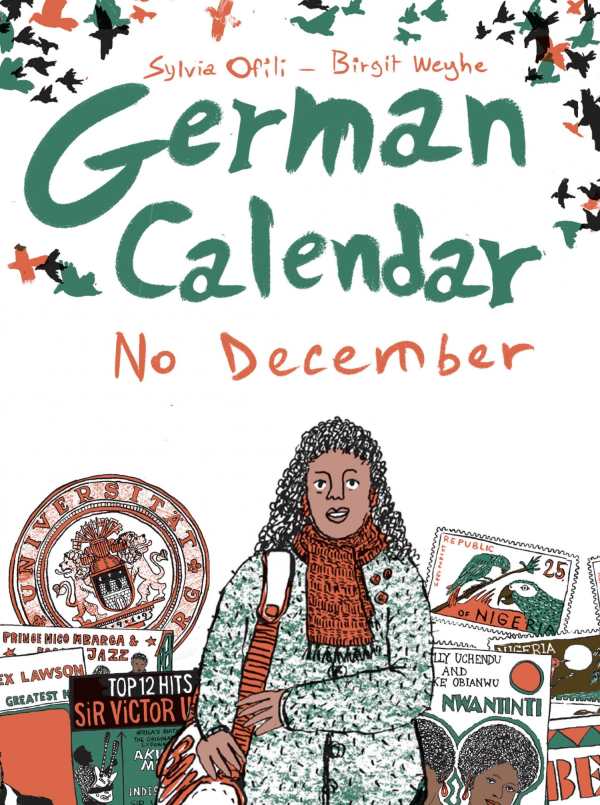German Calendar
No December
In the inspiring graphic novel German Calendar, Olivia leaves her small Nigerian village to attend a boarding school in Lagos. She has high expectations that are based most on children’s novels, but she’s disabused of those notions. She faces a packed schedule and seemingly endless duties and she experiences institutional bullying as senior girls make the new students their personal servants.
The child of a Nigerian father and a German mother, Olivia feels even more out of place than other first-year students. She’s called “Oyinbo,” meaning “white person,” just as her German mother was in their village. Even Olivia’s sense of humor is different: with fondness, she recalls the curious exchange “German Calendar!” “No December!” between characters on her favorite show, while the other girls gush about The Fresh Prince of Bel-Air.
Olivia leads a revolution of sorts, changing things for the better at the school. Upon graduation, she attends university in Germany, but culture shock hits her hard—now she’s called “black girl” or “African Queen” and is the subject of endless, irritating questions from even well-intended Germans. Olivia’s bakery job leads to work sheltering immigrants, and the book ends with her setting out for new adventures, confident in her ability to handle any challenge.
Ofili and Weyhe both have backgrounds that bear similarities to Olivia’s, and although German Calendar‘s writing and artwork are superb, perhaps the book’s greatest strength is that it rings true. It’s a coming-of-age story that emphasizes personal growth, maturity, and a wider view of the world.
Reviewed by
Peter Dabbene
Disclosure: This article is not an endorsement, but a review. The publisher of this book provided free copies of the book to have their book reviewed by a professional reviewer. No fee was paid by the publisher for this review. Foreword Reviews only recommends books that we love. Foreword Magazine, Inc. is disclosing this in accordance with the Federal Trade Commission’s 16 CFR, Part 255.

